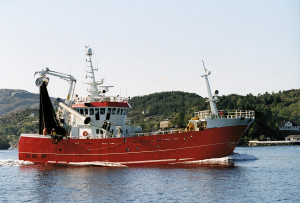В Европе легализуется перелов
Многомесячные переговоры по плану рыбоотлова в Балтийском море проходили необычайно трудно. Группа переговоров европарламента выступала за окончательное прекращение перелова к 2020 году. «Возвращение рыболовства на устойчивый в природоохранном плане уровень необходимо, чтобы предотвратить полное опустошение наших морей. Семь из восьми видов рыбы, обитающих в Балтийском море, находятся под угрозой из-за перелова и других факторов. Угроза Средиземному морю также очень серьезна, да и в Северном море существуют проблемы. Многолетний план развития рыболовства в Балтийском море был шансом взяться за проблему перелова», — говорит Хазекамп.

В ходе переговоров Нидерланды и другие страны ЕС, однако, отказались признать границы для устойчивого рыболовства. «Государства-члены ЕС продолжали оговаривать исключения, только ради того, чтобы иметь возможность продолжать вылавливать больше рыбы. Большинство из группы переговоров, находясь под мощным давлением государств-членов ЕС и Европейской Комиссии, уступило. Последствия этого окажутся серьезными и не ограничатся Балтийским морем», — предупреждает Партия защиты животных, не принимающая подобной сделки.
«План Балтийского моря будет также применяться в качестве отправной точки для Северного моря, Средиземного моря и других европейских вод. Перелов в Европе структурно легализован»,- заявила Анья Хазекамп.
Существует еще один шанс остановить легализацию перелова. Европейский парламент в полном составе всех своих 751 членов должен еще путем голосования утвердить план на пленарном заседании.
Фракция партии защиты животных в Нижней палате парламента ставит под вопрос роль, сыгранную Нидерландами в создании плана по Балтийскому морю. Член парламента Франк Вассенберг подал парламентский запрос госсекретарю Ван Даму о позиции, занимаемой Нидерландами в ходе переговоров.
Overfishing in Europe will be permanently legalised. This is due to the Multiannual Plan for Fisheries in the Baltic Sea on which a deal was concluded between the EU member states and European Parliament this week. The Party for the Animals warns that the agreed plan is in defiance of earlier commitments to put an end to overfishing before the year 2020. “This plan will not only legalise overfishing in the Baltic Sea, it will consequentially make overfishing in the North Sea and other European waters legal as well,” says MEP Anja Hazekamp, who took part in the negotiations on behalf of the Party for the Animals.

The months of negotiations on the plan for fisheries in the Baltic Sea advanced with difficulty. The EU negotiating team called for an end to overfishing before the year 2020. “Gradually reducing the level of fishing to sustainable levels is absolutely necessary to prevent our seas from becoming completely fished out. Seven out of the eight fish species living in the Baltic Sea are endangered due to overfishing and other factors. Fish populations in the Mediterranean Sea as well as in the North Sea are under serious threat. The multiannual plan for the Baltic Sea was our chance to start tackling the issue of overfishing,” according to Hazekamp.
However, as the negotiations proceeded, the Netherlands as well as other EU countries refused to accept a sustainable fishing limit. “EU member states kept negotiating exceptions which would allow them to fish over the set limits. A majority of the negotiating team changed their minds due to great pressure from the member states and European Commission. This will have major consequences which will not be confined to the Baltic Sea,” warns the Party for the Animals, which did not support the overfishing deal.
“The Baltic Sea Plan will also serve as a starting point for the North Sea, the Mediterranean Sea and other European waters. It will thereby legalise structural overfishing in Europe,” says Anja Hazekamp.
There is one final chance to stop the legalisation of overfishing. The plan still has to be adopted by the entire European Parliament in a plenary vote with all 751 members.
The Party for the Animals´ Lower House faction questions the role that the Netherlands has played in the realisation of the Baltic Sea Plan. MP Frank Wassenberg has posed questions in Parliament to State Secretary Van Dam about the input from the Netherlands during negotiations.